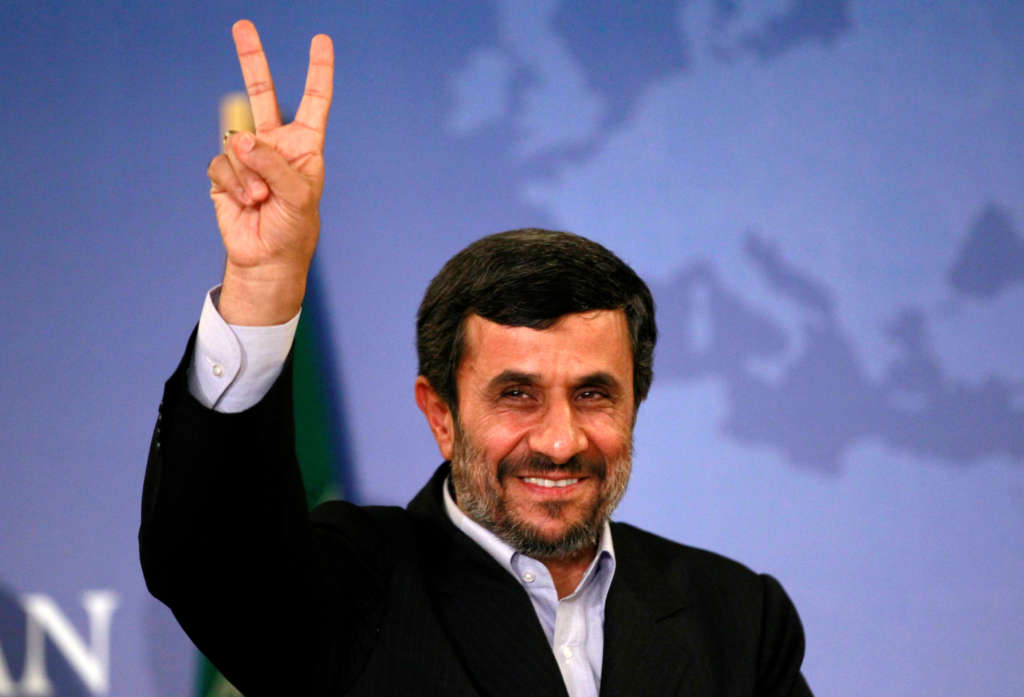London – The Iranian Interior Ministry announced the list of qualified candidates late Thursday night after receiving it from the Guardian Council, effectively allowing them to launch their election campaigns.
In the peak of reactions on the final list, former President Mahmoud Ahmadinejad grabbed the media’s attention and the interaction of Iranians on social media before he announced that he complies with the law and will not respond by igniting strife.
Meanwhile, media reports have talked about the tight security environment in central Tehran, and eyewitnesses reported information about the imposition of a security cordon around the residence of Ahmadinejad.
Iranian media reported that televised debates among presidential candidates would not be livestreamed instead recorded before being broadcast by state-run TV for the citizens.
Conservative media promptly attributed the decision to Hassan Rouhani administration, accusing the president of pressing the campaign monitoring committee to block live broadcasting of debates.
Tasnim website, affiliated with Iranian Revolutionary Guards Corps (IRGC), said the decision stemmed from the government’s “fear of being challenged in these debate programs”, and its “failure to fulfill its promises” which had resulted in “unprecedented economic recession” and a “massive army of the unemployed.”
In an attempt to acquit the administration from the allegation, Ministry of Interior released a statement on Friday afternoon.
Pointing to the composition of Committee for Monitoring Presidential Election Campaigns, where the government holds only two seats out of five, the Interior Ministry statement said the decision for broadcasting debates as recorded programs was a collective decision, not solely that of the government.
Ahmadinejad’s response to being excluded from the elections did not come late as he tweeted on Friday, saying: “After the Guardian Council rejected my candidacy, I announce that I am obedient to the law and nothing else.”
He continued: “Iran needs to stay calm. Raising tension and focusing on marginal issues will only serve the benefits of our enemies.”
In another tweet, Ahmadinejad said that if he stood against the Supreme Leader, they would’ve said that he is from the deviant faction. “Now, that I want to remain silent I am being subjected to a series of accusations and violations.”
Ahmadinejad’s registering as a candidate last week came as a surprise to many.
Supreme Leader Ali Khamenei had advised Ahmadinejad against running and had cited his divisive record.
Ahmadinejad initially suggested he would follow the Supreme Leader’s wishes, but ultimately dismissed them as mere suggestions.
On the other hand, eyewitnesses published videos showing an intense security presence in the vicinity of Ahmadinejad’s residence in the northern Iranian city of Narmak.
A witness who was near Ahmadinejad’s house in eastern Tehran on Thursday night told Reuters that “around 50 police officers had blocked two ends of the street to his house to prevent possible gathering of his supporters”.
The list of candidates included three from the conservative party former Culture Minister Mostafa Mirsalim, Tehran Mayor Mohammad Bagher Ghalibaf and former Public Prosecutor Ebrahim Raisi.
The other three candidates were from the moderate and reformist parties, headed by President Hassan Rouhani, Vice-President Eshaq Jahangiri and Mostafa Hashemitaba.
